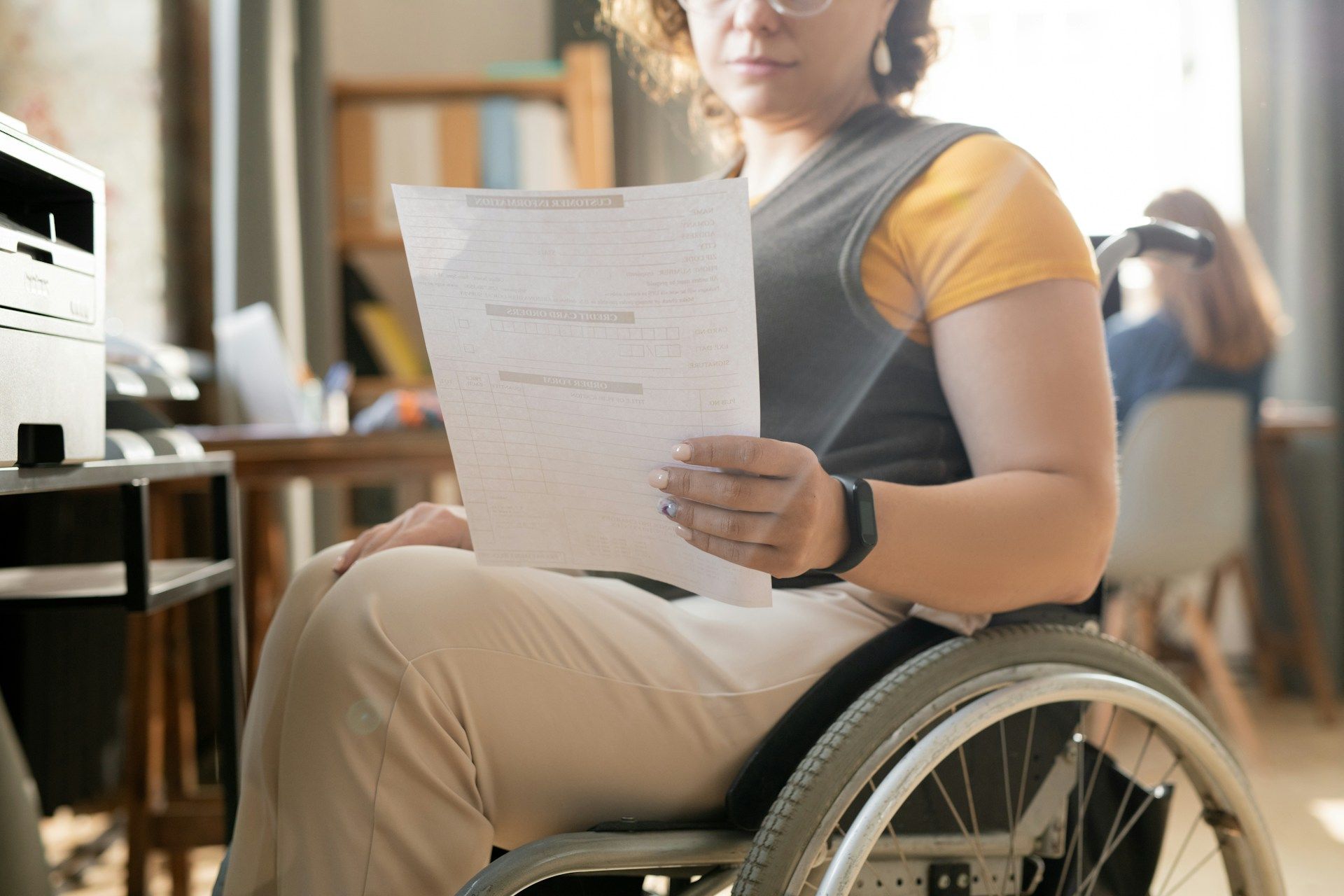Table of Contents
How Will My Settlement Affect My SSDI Benefits?
Navigating the aftermath of a personal injury accident can be challenging, especially when you are also receiving Social Security Disability Insurance (SSDI) benefits. Understanding how a settlement might impact your SSDI benefits is crucial to safeguarding your financial stability. We hope this article will help you learn the basics of SSDI, how to distinguish between SSDI and SSI, and how to explore how lump-sum settlements affect SSDI benefits, and provide strategies to protect your benefits.
Basics of SSDI (Eligibility and Benefits)
Social Security Disability Insurance (SSDI) is a federal program designed to provide financial support to individuals who have a disability that prevents them from working. To qualify for SSDI, one must:
- Have a Disability: Your condition must meet the Social Security Administration’s (SSA) definition of disability.
- Sufficient Work History: You must have earned enough work credits through employment covered by Social Security. Generally, you need 40 credits, 20 of which were earned in the last 10 years, and ending with the year you became disabled.
Once approved, SSDI benefits are based on your average lifetime earnings before your disability began. It is also possible that your benefits extend to certain immediate family members.
Difference Between SSDI & SSI
It is important to note the differences between SSDI and Supplemental Security Income (SSI). These two categories serve different populations, and have distinct eligibility criteria:
- SSDI: SSDI is funded through payroll taxes. SSDI benefits are available to disabled individuals who have paid into the Social Security system through their work history, which applies to most individuals, but not all. There are no income or resource limits for eligibility.
- SSI: SSI is a needs-based program that provides financial assistance to disabled, blind, or elderly individuals (65 years or older) with limited income and resources. Unlike SSDI, SSI benefits are not contingent on work history but are subject to strict income and asset limits. This means that receiving a personal injury settlement could potentially lead to a reduction of complete termination of one’s SSI benefits.
How Personal Injury Lump Sum Settlements Affect SSDI Benefits
One of the most common concerns for SSDI recipients is how a personal injury settlement might impact their benefits. Here are some of the main items that you need to know:
- No Immediate Impact on SSDI: Generally, receiving a lump-sum personal injury settlement does not affect your SSDI benefits directly. SSDI is designed statically, meaning your income and resources do not impact your eligibility once you are already receiving benefits.
- Potential for Impact on Medicare: If you are also receiving Medicare due to your SSDI eligibility, a large settlement could affect your Medicare premiums and out-of-pocket costs. This usually comes into play when the settlement includes compensation for future medical expenses.
How to Protect Benefits When Receiving a Settlement
To ensure your SSDI benefits remain unaffected and to manage any potential impact on Medicare, the team at MKP Law Group, LLP can advise you on the following strategies to protect your benefits:
- Structured Settlement: Instead of a lump-sum payment, you can opt for a structured settlement, which distributes the settlement amount over a period of time. This can help manage the financial impact more effectively and ensure that large sums do not interfere with any needs-based programs you may also be receiving.
- Special Needs Trust (SNT): Although primarily used to protect SSI and Medicaid benefits, setting up a Special Needs Trust can also be a strategic move if you anticipate future eligibility for these programs. Funds in an SNT are not considered countable resources for means-tested benefits.
- Medicare Set-Aside (MSA): If your settlement includes compensation for future medical expenses, we can help to establish a Medicare Set-Aside account. This account allocates a portion of your settlement for future medical costs related to your injury, ensuring compliance with Medicare regulations, and protecting your Medicare eligibility.
- Professional Legal Advice: Consult with a lawyer at MKP, where we specialize in SSDI and personal injury settlements. We can help to provide tailored advice and help you navigate the complexities of your case, ensuring that your benefits are protected.
Receiving a personal injury settlement while on SSDI requires careful planning and consideration. While SSDI benefits are not directly impacted by a lump-sum settlement, taking proactive steps to manage the settlement can protect your financial health and any other benefits you may receive. Structured settlements, Special Needs Trusts, and Medicare Set-Asides are effective tools to consider. When attempting to navigate the world of disability aid and SSDI benefits, it can get confusing. At MKP Law Group, we have a team of professionals who are well-versed in this navigation, and can provide aid every step of the way.
For more detailed information or personalized advice, contact our legal team today for a 100% free consultation. The team at MKP Law Group, LLP is here to help you protect your rights and secure your financial future.


